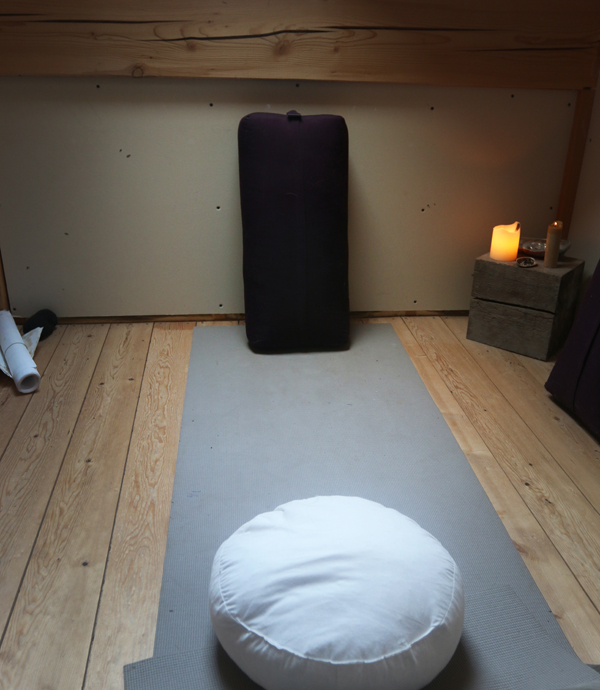“Oh, your kids will love this space!”
This was the inevitable refrain of people touring our recently built home. My husband and I were newlyweds, with a child in the not-too-distant future, and when we introduced the house’s coziest feature—a bright, 8 by 8 foot nook with sloped ceilings and barely enough room to stand at the center—we’d always get the same response.
I’d muster my most maternal smile and think to myself, “Hell no.”
Here’s the thing: During our first three years together, during which we’d been building our home, my husband and I lived in a 300-square-foot suite above our garage. Fortunately, we liked each other—a lot. But when the time came to move into the home we’d built, I was more than ready to have a little room of my own.
The thought of that sacred space scattered with toys and sticky finger prints was not appealing.
The thing is, everyone needs a space all their own: a space to create, to read, to just be—somewhere to escape to. This was my place to do yoga, meditate, and be blissfully alone, even if it was only wide enough for my yoga mat and tall enough for a stack of my favourite books.
The classic architecture text, A Pattern Language, in its labyrinth of design suggestions, ranging in scale from neighbours to nooks, dedicates a chapter to exactly this:
“We propose that a room of one’s own—an alcove or bed nook for younger children—is essential for each member of the family. It helps develop one’s own sense of identity; it strengthens one’s relationship to the rest of the family; and it creates personal territory, thereby building ties with the house itself.”
The modern equivalent might be the “man cave” or the “she shed.” But you don’t need to occupy a Pinterest-worthy backyard dwelling or the entire basement; you can start with a small corner, a window ledge, or a storage room. Add candles, cushions, and blankets. Fill it with meaningful objects.
Then retreat there: once a day or once a week. Spend just enough time there to strengthen your connection to the place, to the people in your life, and, most importantly, to yourself.
In her 1929 essay, A Room of One’s Own, Virginia Woolf espoused not only a woman’s need for a physical space to write, but the space within society to be herself—the creative elbow room for literary expression within a predominantly male-dominated discipline.
Doesn’t it follow that the spaces we create for ourselves—physically, temporally, spiritually—extend beyond our physical being? That when we change our inner world, we correspondingly change our outer world? As we command the space within our personal domain to be ourselves, to pursue our passions, we begin to live that life outwardly. We begin to carve out a space for ourselves in this world.
I was mentally occupying those 64 square feet in the northwest corner of my home, what’s become known as the “secret room,” long before our home was completed. I would find myself dropping in there during meditation. Though still under construction, that space was already wielding its magic inside of me.
Now, when I wake before my family, I creep in there, light a few candles, cozy up in a blanket, and sit. I let go of yesterday and prepare for today. I simply exist in this world I’ve created, this home I’ve built, listening to the people I love snore and rustle around in their beds.
I don’t need a lot of space for this, but I do need a space that’s all mine. Not the space where I work or cook or watch TV. Not the space where I sleep or spend time with family. A space for this. A space dedicated to quality time with myself.
As I sit there, the light comes. The room shifts from a candlelit yellow to the grayness of dawn. I hear tiny footsteps and my toddler’s sleepy voice asking, “Where’s Mama?”
My heart nearly bursts with love.
And I smile—quietly.
~
~
Author: Amanda Follett Hosgood
Image: Author’s own; @ecofolks/Instagram
Editor: Nicole Cameron
Copy Editor: Callie Rushton
Social Editor: Waylon Lewis

 Share on bsky
Share on bsky





Read 14 comments and reply